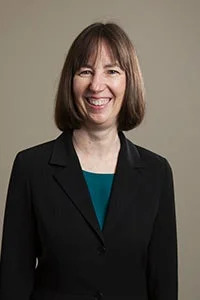Wills, Trusts, and Estates in Focus, Second Edition
Wills, Trusts, and Estates in Focus, Second Edition
Buy a new version of this textbook and receive access to the Connected eBook with Study Center on Casebook Connect, including lifetime access to the online ebook with highlight, annotation, and search capabilities. Access also includes practice questions, an outline tool, and other helpful resources. Connected eBooks provide what you need most to be successful in your law school classes.
Well-crafted pedagogy makes WTE concepts and procedure clear and accessible for all students. Straightforward exposition and examples support independent learning. Concisely edited cases are framed by Case Previews and Post-Case Follow-Ups that highlight the issue at hand, review the court’s decision, provide context, and prepare students to apply the relevant legal principles to the exercises that follow: Real Life Applications. Content summaries and problem sets at the end of each chapter enable students to review and assess their mastery of content.
New to the Second Edition
- Expanded discussion of survival, with references to attempted updates to the Uniform Determination of Death Act
- Enhanced coverage of tax values, including the future of estate tax in light of a 2025 end date for current estate tax provisions
- Important updates to electronic wills, estate planning documents, and the current rules on remote witnessing and notarization
- Major new cases, including
- Reynolds v. Van Den Steene, addressing the requirement of capacity in will contests
- Herbst v. Board of Regents of the University of Colorado, involving the issue of standing in the management of a charitable trust
- Reece Trust v. Reece, concerning the interpretation of a standard to distribute property for a wife’s support
- In re Trust Under Deed of Garrison, demonstrating how trusts can be reformed by unanimous consent
- Insightful authorship from three widely respected academics, Naomi R. Cahn, Alyssa DiRusso, and Susan Gary, whose expertise in WTE extends to related areas such as family law, charities, elder law, and tax. All are elected Fellows of the American College of Trust and Estate Counsel (ACTEC), the leading professional organization of trust and estates attorneys.
- A consciously modern approach that balances landmark decisions, contemporary cases, and important timely developments in the law
- Coverage, writing, and pedagogy that promotes learning outcomes and competencies
- Knowledge and understanding of substantive and procedural WTE law
- Legal analysis, reasoning, and problem-solving skills
- A WTE lawyer's professional and ethical responsibilities
- Research and drafting exercises develop practice-based skills
- Examples in the Appendix of how doctrine maps onto practice, as in will contest pleadings and probate filings
Table of Contents
Preface
Acknowledgments
Chapter 1 Introduction to the Law and Practice of Trusts and Estates
Chapter 2 Intestacy
Chapter 3 Creation of Wills
Chapter 4 Amendment and Revocation of Wills
Chapter 5 Wills — Construction and Interpretation
Chapter 6 Will Contests
Chapter 7 Nonprobate Transfers and Planning for Incapacity
Chapter 8 Family Protection
Chapter 9 Creation of Trusts
Chapter 10 Rights of Beneficiaries and Creditors in Trust Property
Chapter 11 Fiduciary Duties and Modification and Termination of Trusts
Chapter 12 Powers of Appointment
Chapter 13 Professional Ethics in Trusts and Estates
Chapter 14 Estate Administration and the Probate Process
Chapter 15 Introduction to Federal Estate and Gift Taxes
Glossary
Table of Cases
Index
Product Information
Wills, Trusts, and Estates in Focus, Second Edition
Connected eBook with Study Center + Hardcover
Wills, Trusts, and Estates in Focus, Second Edition
LLPOD
Wills, Trusts, and Estates in Focus, Second Edition
Connected eBook (Digital Only)


